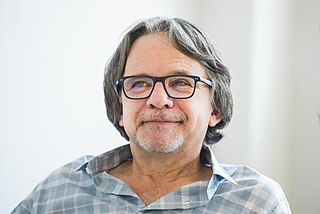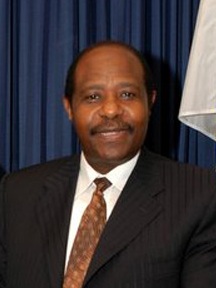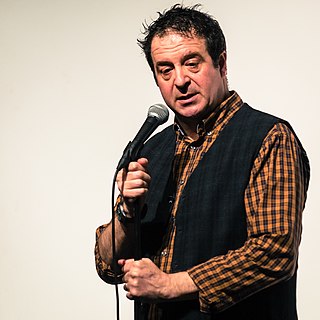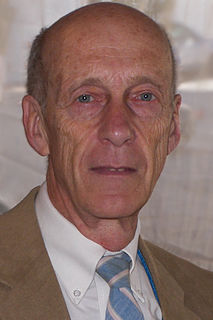A Quote by Ross Douthat
I think true atheism is a rare thing in human affairs: Even in the most secularized precincts of Europe, a lot of nominal nonbelievers turn out to have all sorts of supernatural and metaphysical beliefs.
Related Quotes
The transcendent and the numinous can be accessible to the most materialistic of scientists, without positing the supernatural. At the same time, there is no reason to mistrust the same experiences in believers simply because they posit a supernatural source. The question is not, "Does God exist?" It's irrelevant. The question is whether believers and nonbelievers can rejoice in the same experiences and not denigrate the other's explanation as to the origins of very powerful human responses.
Isn't atheism just another religion?' No, it isn't. Atheism has no creeds, rituals, holy book, absolute moral code, origin myth, sacred spaces or shrines. It has no sin, divine judgment, forbidden words, prayer, worship, prophecy, group privileges, or anointed 'holy' leaders. Atheists don't believe in a transcendent world or supernatural afterlife. Most important, there is no orthodoxy in atheism.
Hinduism, Confucianism, and Buddhism are huge traditions of enormous importance, and they aren't monotheistic. Again, this reflects the fact that our preconceptions about what religion is are so influenced by Protestantism - either real Protestantism or the secularized Protestantism that dominates our culture - and its assumption that beliefs are the most important thing.
More and more people are becoming unable to accept traditional [religious] beliefs. If they think that, apart from these beliefs, there is no reason for kindly behaviour, the results may be needlessly unfortunate. That is why it is important to show that no supernatural reasons are needed to make [people] kind and to prove that only through kindness can the human race achieve happiness.
"Methodological naturalism" and "metaphysical naturalism" are terms that often surface in the continuing battle between evolutionary biology and creationism/intelligent design. The methodological thesis says that scientific theories shouldn't postulate supernatural entities; the metaphysical thesis says that no such entities exist. In this debate, God is the supernatural entity at issue; the question isn't whether science gets to talk about mathematical entities if Platonism is correct.
But one thing that seems pretty clear when we look at human religion is that it's highly tied in with human culture. So if, as seems to be the case, culture's governing a lot of what whales do, it's perhaps not an unreasonable hypothesis to think that it's got elements of...what I guess you'd call the supernatural.
Let me tell you that atheism has never painted a masterpiece. Atheism has never dispelled fear. Atheism has never healed a disease; faith in God has, but not atheism. Atheism has never given anyone piece of mind. Atheism has never dried a tear. Atheism has never given an intellectual answer to the creation. Atheism is bankrupt and empty; it's brain dead.
One reason why I recommend the abandonment of religious beliefs is because I think those beliefs are wrong. There is no evidence that our world was created by divine intention, that a god intercedes in human affairs, or that there is life after death. Religion is a hangover from humankind's timorous infancy; it's time for us to walk upright and unafraid, and to take charge of our own lives.
The most dangerous type of atheism is not theoretical atheism, but practical atheism -that's the most dangerous type. And the world, even the church, is filled up with people who pay lip service to God and not life service. And there is always a danger that we will make it appear externally that we believe in God when internally we don't. We say with our mouths that we believe in him, but we live with our lives like he never existed. That is the ever-present danger confronting religion. That's a dangerous type of atheism.
In fact, "atheism" is a term that should not even exist. No one ever needs to identify himself as a "non-astrologer" or a "non-alchemist." We do not have words for people who doubt that Elvis is still alive or that aliens have traversed the galaxy only to molest ranchers and their cattle. Atheism is nothing more than the noises reasonable people make in the presence of unjustified religious beliefs.



































